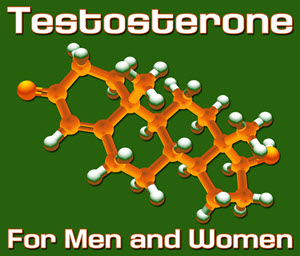Introduction to Testosterone Deficiency Syndrome
Testosterone deficiency syndrome, also known as hypogonadism, is a clinical condition characterized by low levels of testosterone, the primary male sex hormone. This deficiency can lead to a variety of symptoms, including reduced libido, fatigue, and mood disturbances. Among American men, a significant concern arises from the impact of testosterone deficiency on muscle mass and overall physical strength, which can profoundly affect quality of life and health outcomes.
The Role of Testosterone in Muscle Development
Testosterone plays a pivotal role in the development and maintenance of muscle mass. It stimulates protein synthesis and inhibits protein breakdown, thereby promoting muscle growth and strength. In American men, where physical fitness and strength are often linked to societal perceptions of masculinity and health, the implications of testosterone deficiency can be particularly impactful.
Clinical Manifestations of Muscle Loss Due to Low Testosterone
Men with testosterone deficiency often experience a noticeable decline in muscle mass and strength. This can manifest as reduced physical performance, increased fatigue during physical activities, and a general sense of weakness. In the context of American men, who may engage in regular physical activities or sports, these symptoms can be particularly distressing and can lead to a decrease in overall physical activity levels, further exacerbating muscle loss.
Diagnostic Approaches and Considerations
Diagnosing testosterone deficiency involves measuring serum testosterone levels, typically through blood tests conducted in the morning when levels are highest. American men experiencing symptoms such as muscle loss should consult healthcare providers for a comprehensive evaluation, which may include assessing other hormone levels and conducting physical examinations to rule out other causes of muscle weakness.
Treatment Strategies and Muscle Mass Restoration
Treatment for testosterone deficiency typically involves testosterone replacement therapy (TRT), which can help restore testosterone levels to normal ranges. For American men, TRT can significantly improve muscle mass and strength, enhancing physical performance and overall well-being. It is crucial, however, to monitor treatment closely to avoid potential side effects such as an increased risk of cardiovascular issues or prostate enlargement.
Lifestyle Interventions to Support Muscle Health
In addition to medical treatments, American men can adopt lifestyle interventions to support muscle health. Regular resistance training and a protein-rich diet can help mitigate muscle loss associated with testosterone deficiency. Moreover, maintaining a healthy weight and avoiding excessive alcohol consumption can also contribute to better muscle health and overall physical function.
The Psychological Impact of Muscle Loss
The psychological impact of muscle loss due to testosterone deficiency should not be underestimated. American men may experience a decline in self-esteem and body image, which can lead to mental health issues such as depression and anxiety. Addressing these psychological aspects through counseling or support groups can be an essential part of comprehensive care.
Future Directions in Research and Care
Ongoing research continues to explore the long-term effects of testosterone deficiency on muscle mass and the efficacy of various treatment modalities. For American men, personalized medicine approaches that consider genetic factors and individual health profiles may offer more tailored and effective treatments in the future.
Conclusion: Empowering American Men Through Knowledge and Action
Understanding the implications of testosterone deficiency on muscle mass is crucial for American men seeking to maintain their physical health and well-being. By recognizing the symptoms early and pursuing appropriate medical and lifestyle interventions, men can mitigate the effects of this condition and lead healthier, more active lives. As research progresses, the hope is to provide even more effective strategies to support muscle health in the face of testosterone deficiency.
Contact Us Today For A Free Consultation

- Understanding Testosterone Deficiency: Symptoms, Diagnosis, and Management in American Men [Last Updated On: February 20th, 2025] [Originally Added On: February 20th, 2025]
- Stress-Induced Testosterone Decline in American Males: Causes and Management Strategies [Last Updated On: March 16th, 2025] [Originally Added On: March 16th, 2025]
- Testosterone Deficiency Syndrome: Hormone Therapy Benefits and Holistic Management for American Males [Last Updated On: March 19th, 2025] [Originally Added On: March 19th, 2025]
- Testosterone Deficiency in American Men: Symptoms, Diagnosis, and Energy-Boosting Treatments [Last Updated On: March 20th, 2025] [Originally Added On: March 20th, 2025]
- Testosterone Deficiency in American Men: Impacts on Mood and Mental Health [Last Updated On: March 20th, 2025] [Originally Added On: March 20th, 2025]
- Testosterone Deficiency Syndrome: Impact, Diagnosis, and Management in Aging American Men [Last Updated On: March 20th, 2025] [Originally Added On: March 20th, 2025]
- Environmental Toxins Linked to Rising Testosterone Deficiency in U.S. Males [Last Updated On: March 20th, 2025] [Originally Added On: March 20th, 2025]
- Testosterone Deficiency Syndrome: Impacts on Prostate Health and Management Strategies [Last Updated On: March 21st, 2025] [Originally Added On: March 21st, 2025]
- Testosterone Deficiency Syndrome: Importance of Regular Monitoring and Management in American Men [Last Updated On: March 21st, 2025] [Originally Added On: March 21st, 2025]
- Smoking's Impact on Testosterone Levels and TDS Risk in American Males [Last Updated On: March 21st, 2025] [Originally Added On: March 21st, 2025]
- Vitamin D's Role in Managing Testosterone Deficiency in American Males [Last Updated On: March 22nd, 2025] [Originally Added On: March 22nd, 2025]
- Chronic Illnesses and Their Impact on Testosterone Deficiency in American Males [Last Updated On: March 22nd, 2025] [Originally Added On: March 22nd, 2025]
- Alcohol's Impact on Testosterone and Risk of TDS in American Males [Last Updated On: March 22nd, 2025] [Originally Added On: March 22nd, 2025]
- Zinc's Vital Role in Combating Testosterone Deficiency in American Men [Last Updated On: March 22nd, 2025] [Originally Added On: March 22nd, 2025]
- Magnesium's Role in Managing Testosterone Deficiency Syndrome in American Males [Last Updated On: March 22nd, 2025] [Originally Added On: March 22nd, 2025]
- Testosterone Deficiency Syndrome: Understanding Its Impact on Hair Loss in Men [Last Updated On: March 23rd, 2025] [Originally Added On: March 23rd, 2025]
- Testosterone Deficiency Syndrome: Impacts on Immune Function in American Men [Last Updated On: March 23rd, 2025] [Originally Added On: March 23rd, 2025]
- Testosterone Deficiency and Cognitive Decline in American Men: Impacts and Interventions [Last Updated On: March 23rd, 2025] [Originally Added On: March 23rd, 2025]
- Testosterone Deficiency Impacts Muscle, Fat, and Bone Health in American Males [Last Updated On: March 23rd, 2025] [Originally Added On: March 23rd, 2025]
- Testosterone Deficiency in American Men: Impacts on Libido and Holistic Management [Last Updated On: March 23rd, 2025] [Originally Added On: March 23rd, 2025]
- Omega-3 Fatty Acids: A Promising Approach to Managing Testosterone Deficiency in Men [Last Updated On: March 23rd, 2025] [Originally Added On: March 23rd, 2025]
- Soy Consumption and Testosterone Levels in American Men with TDS: A Comprehensive Review [Last Updated On: March 23rd, 2025] [Originally Added On: March 23rd, 2025]
- Testosterone Deficiency and Depression: Exploring the Link in American Men [Last Updated On: March 23rd, 2025] [Originally Added On: March 23rd, 2025]
- Ashwagandha: A Natural Remedy for Testosterone Deficiency in American Males [Last Updated On: March 24th, 2025] [Originally Added On: March 24th, 2025]
- Shift Work's Impact on Testosterone Levels in American Males: A Growing Concern [Last Updated On: March 24th, 2025] [Originally Added On: March 24th, 2025]
- Testosterone Deficiency Syndrome: Impacts on Skin Health and Management Strategies [Last Updated On: March 24th, 2025] [Originally Added On: March 24th, 2025]
- Blue Light Exposure Linked to Testosterone Deficiency in American Men: Mitigation Strategies [Last Updated On: March 24th, 2025] [Originally Added On: March 24th, 2025]
- Testosterone Deficiency and Sleep Apnea: A Bidirectional Health Concern for American Males [Last Updated On: March 25th, 2025] [Originally Added On: March 25th, 2025]
- Testosterone Deficiency and Anemia: Understanding Links and Managing Health in American Males [Last Updated On: March 25th, 2025] [Originally Added On: March 25th, 2025]
- Weight Training Boosts Testosterone: A Solution for American Men with TDS [Last Updated On: March 25th, 2025] [Originally Added On: March 25th, 2025]
- Testosterone Deficiency and Joint Health in American Males: Impacts and Management Strategies [Last Updated On: March 25th, 2025] [Originally Added On: March 25th, 2025]
- Testosterone Deficiency in American Male Athletes: Symptoms, Impact, and Management Strategies [Last Updated On: March 25th, 2025] [Originally Added On: March 25th, 2025]
- Testosterone Deficiency in American Men: Impacts on Dental Health and Management Strategies [Last Updated On: March 25th, 2025] [Originally Added On: March 25th, 2025]
- Air Pollution's Impact on Testosterone Levels and TDS in American Males [Last Updated On: March 26th, 2025] [Originally Added On: March 26th, 2025]
- Boron Supplementation: A Promising Approach to Managing Testosterone Deficiency in American Males [Last Updated On: March 26th, 2025] [Originally Added On: March 26th, 2025]
- Testosterone Deficiency Syndrome: Impacts on Vision Health in American Men [Last Updated On: March 26th, 2025] [Originally Added On: March 26th, 2025]
- Pesticide Exposure Linked to Testosterone Deficiency in American Men: Risks and Reduction Strategies [Last Updated On: March 26th, 2025] [Originally Added On: March 26th, 2025]
- Diet Soda Consumption Linked to Lower Testosterone Levels in American Men [Last Updated On: March 26th, 2025] [Originally Added On: March 26th, 2025]
- EMF Exposure and Testosterone Levels: Implications for TDS in American Males [Last Updated On: March 27th, 2025] [Originally Added On: March 27th, 2025]
- Chronic Stress and Testosterone Deficiency in American Males: Impacts and Management [Last Updated On: March 27th, 2025] [Originally Added On: March 27th, 2025]
- High-Fat Diets and Testosterone: Impacts and Dietary Strategies for American Males [Last Updated On: March 27th, 2025] [Originally Added On: March 27th, 2025]
- Testosterone Deficiency Syndrome: Impacts on Liver Health in American Males [Last Updated On: March 27th, 2025] [Originally Added On: March 27th, 2025]
- Testosterone Deficiency Linked to Pancreatic Health Issues in American Men [Last Updated On: March 27th, 2025] [Originally Added On: March 27th, 2025]
- Testosterone Deficiency Linked to Hearing Loss in American Males: Insights and Implications [Last Updated On: March 27th, 2025] [Originally Added On: March 27th, 2025]
- Testosterone Deficiency in American Males: Impacts on Memory and Cognitive Health [Last Updated On: March 27th, 2025] [Originally Added On: March 27th, 2025]
- Heavy Metal Exposure and Testosterone Deficiency in American Men: Impacts and Mitigation [Last Updated On: March 27th, 2025] [Originally Added On: March 27th, 2025]
- Testosterone Deficiency Syndrome: Impacts on Kidney Function and Holistic Management Strategies [Last Updated On: March 28th, 2025] [Originally Added On: March 28th, 2025]
- Plasticizers Linked to Testosterone Deficiency in American Men: Emerging Research and Risks [Last Updated On: March 28th, 2025] [Originally Added On: March 28th, 2025]
- Testosterone Deficiency and Adrenal Health: A Holistic Approach for American Males [Last Updated On: March 29th, 2025] [Originally Added On: March 29th, 2025]
- Testosterone Deficiency and Thyroid Health: Interconnections and Management Strategies [Last Updated On: March 29th, 2025] [Originally Added On: March 29th, 2025]
- Fenugreek: A Natural Solution for Testosterone Deficiency in American Males [Last Updated On: March 30th, 2025] [Originally Added On: March 30th, 2025]
- Testosterone Deficiency Linked to Increased Gallbladder Disease Risk in American Males [Last Updated On: March 31st, 2025] [Originally Added On: March 31st, 2025]
- Noise Pollution Linked to Testosterone Deficiency in American Males: A Growing Concern [Last Updated On: April 1st, 2025] [Originally Added On: April 1st, 2025]
- Testosterone Deficiency Syndrome in American Men: Pituitary Role, Symptoms, and Management [Last Updated On: April 1st, 2025] [Originally Added On: April 1st, 2025]
- Tribulus Terrestris: A Promising Aid for Testosterone Deficiency in American Men [Last Updated On: April 4th, 2025] [Originally Added On: April 4th, 2025]
- Testosterone Deficiency Syndrome: Impact, Diagnosis, and Treatment in American Men [Last Updated On: April 5th, 2025] [Originally Added On: April 5th, 2025]
- Fluoride Exposure and Testosterone Levels in American Men: A Potential Link Explored [Last Updated On: April 6th, 2025] [Originally Added On: April 6th, 2025]
- Testosterone Deficiency and Pineal Gland: Impacts and Strategies for American Males [Last Updated On: April 7th, 2025] [Originally Added On: April 7th, 2025]
- DHEA Supplementation: A Promising Approach to Managing Testosterone Deficiency in American Males [Last Updated On: April 9th, 2025] [Originally Added On: April 9th, 2025]
- Testosterone Deficiency Syndrome: Impacts on Parathyroid Health and Holistic Management [Last Updated On: April 10th, 2025] [Originally Added On: April 10th, 2025]
- Phthalates Exposure Linked to Testosterone Deficiency in American Males: A Public Health Concern [Last Updated On: April 10th, 2025] [Originally Added On: April 10th, 2025]
- Testosterone Deficiency in American Males: Impacts on Respiratory Health and COPD [Last Updated On: April 11th, 2025] [Originally Added On: April 11th, 2025]
- Bisphenol A Exposure Linked to Testosterone Deficiency in American Men [Last Updated On: April 11th, 2025] [Originally Added On: April 11th, 2025]
- Ginseng's Potential in Managing Testosterone Deficiency in American Males [Last Updated On: April 11th, 2025] [Originally Added On: April 11th, 2025]
- PFC Exposure Linked to Testosterone Deficiency in American Males: A Public Health Concern [Last Updated On: April 12th, 2025] [Originally Added On: April 12th, 2025]
- Testosterone Deficiency Syndrome: Gastrointestinal Impacts and Management in American Males [Last Updated On: April 13th, 2025] [Originally Added On: April 13th, 2025]
- Testosterone Deficiency and Urinary Health in American Men: Impacts and Management [Last Updated On: April 14th, 2025] [Originally Added On: April 14th, 2025]
Word Count: 583





















